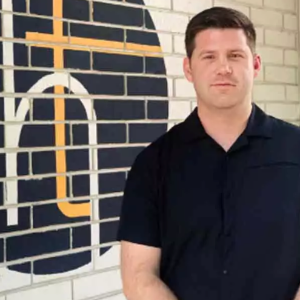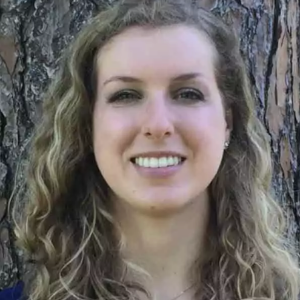






The Heights Treatment Houston
Verified Center
This provider's information has been quality-checked by Recovery.com's Research Team for accuracy and completeness, including center verification through appropriate third-party organizations.
Treatment Focus
This center treats substance use disorders and mental health conditions. You'll receive individualized care catered to your unique situation and diagnosis, learn practical skills for recovery, and make new connections in a restorative environment.
Primary Level of Care
Outpatient treatment offers flexible therapeutic and medical care without the need to stay overnight in a hospital or inpatient facility. Some centers offer intensive outpatient program (IOP), which falls between inpatient care and traditional outpatient service.
Treatment Focus
This center treats substance use disorders and mental health conditions. You'll receive individualized care catered to your unique situation and diagnosis, learn practical skills for recovery, and make new connections in a restorative environment.
Primary Level of Care
Outpatient treatment offers flexible therapeutic and medical care without the need to stay overnight in a hospital or inpatient facility. Some centers offer intensive outpatient program (IOP), which falls between inpatient care and traditional outpatient service.
Provider's Policy
The Heights Treatment in California and Texas work with most most private insurance plans. The Heights Treatment California is in network with Anthem Blue Cross, MHN & Health Net.
The Heights Treatment Houston
The Heights Treatment Houston
About The Heights Treatment Houston
The Heights Houston offers highly individualized outpatient programs for substance and behavioral addictions, along with mental health disorders and co-occurring disorders. Their treatment programs blend evidence-based practices and integrative therapies, giving clients access to cutting-edge care. With a focus on trauma and mental health, The Heights Treatment team can find and help heal the root cause of addiction. The Heights Houston also addresses love and sex addiction, technology addiction, and gambling addiction. Evidence-based care blends with holistic and wellness modalities to create personalized care for each client, beginning to end.
Outpatient Programs And Nearby Sober Living
The Heights Houston’s 90-day individualized intensive outpatient program (IIP) includes sober living at Transcend Living, and a recovery mentor from Transcend Mentoring. They also transport clients from their sober living home to treatment. In all their outpatient programs, clients engage in 1-on-1 counseling, neurofeedback, eye movement therapy (EMDR), and mindfulness therapy. For less intensive care, The Heights has a Day Treatment (PHP), an intensive outpatient program (IOP), and an outpatient program. Their mental health program helps clients with primary mental health conditions like depression, anxiety, and trauma.
Mental Health And Dual-Diagnosis Care
A focus on trauma and dual-diagnoses helps clients get the comprehensive, full-person treatment they need to heal from the disease of addiction long term. The Heights’ multidisciplinary team of staff ensure that treatment plans are personalized, relevant, and adaptable as clients work through recovery. Notably, The Heights also assigns a family therapist to each client, helping restore and strengthen relationships that may have been damaged. A personal recovery mentor adds to the in-depth treatment clients can expect.
Flexible And Comfortable Treatment
The Heights Treatment Center has 2 locations, one in Los Angeles, California and the other in Houston, Texas. The facilities, located near the city centers, are ultra-modern, comfortable, and up-scale. Their outpatient care and supportive living services aim to provide step-down care from inpatient treatment, or provide thorough care without cramping the schedules of busy professionals, parents, and students. In each location, nearby sober living homes provide a safe space to live during outpatient treatment.
Center Overview
Treatment Focus
This center treats substance use disorders and mental health conditions. You'll receive individualized care catered to your unique situation and diagnosis, learn practical skills for recovery, and make new connections in a restorative environment.

Insurance Accepted
Cash Pay Rates
Estimated Cash Pay Rate
Center pricing can vary based on program and length of stay. Contact the center for more information. Recovery.com strives for price transparency so you can make an informed decision.
Meet Your Care Team

Joni Ogle
Chief Executive Officer
LCSW, CSAT

Adam Zagha
Chief Operating Officer

Sarah McGinnis
Primary Therapist
LPC Associate

Matthew Meares
Primary Therapist
LMSW

Merilee Minshew
Primary & Family Therapist, Client Care Manager
MAAT, LPC

Nina Garcia
Primary Therapist
LPC-I, RDT, CCTP

Kari Morton
Admissions Specialist

Harry Perkins
Admissions Specialist

Kimberly Burg
Primary Therapist




Levels of Care








Your Care Options
Specializations
Alcohol
Using alcohol as a coping mechanism, or drinking excessively throughout the week, signals an alcohol use disorder.
Anxiety
Anxiety is a common mental health condition that can include excessive worry, panic attacks, physical tension, and increased blood pressure.
Depression
Symptoms of depression may include fatigue, a sense of numbness, and loss of interest in activities. This condition can range from mild to severe.
Drug Addiction
Drug addiction is the excessive and repetitive use of substances, despite harmful consequences to a person's life, health, and relationships.
Gambling
Excessive, repetitive gambling causes financial and interpersonal problems. This addiction can interfere with work, friendships, and familial relationships.
Who We Treat
Approaches
Evidence-Based
A combination of scientifically rooted therapies and treatments make up evidence-based care, defined by their measured and proven results.
Holistic
A non-medicinal, wellness-focused approach that aims to align the mind, body, and spirit for deep and lasting healing.
Individual Treatment
Individual care meets the needs of each patient, using personalized treatment to provide them the most relevant care and greatest chance of success.
Personalized Treatment
The specific needs, histories, and conditions of individual patients receive personalized, highly relevant care throughout their recovery journey.
Therapies
Trauma-Specific Therapy
This form of talk therapy addresses any childhood trauma at the root of a patient's current diagnosis.
Mindfulness Therapy
This ancient practice can be mental, emotional, and even spiritual. In meditation, you focus your attention on the present moment without judgement.
Art Therapy
Visual art invites patients to examine the emotions within their work, focusing on the process of creativity and its gentle therapeutic power.
Equine Therapy
Guided interactions with trained horses, their handler, and a therapist can help patients improve their self-esteem, trust, empathy, and social skills.
Experiential Therapy
With this approach, patients heal by doing. Therapists help patients process difficult emotions to speak, using guided activities like art or dance.
Eye Movement Therapy (EMDR)
Lateral, guided eye movements help reduce the emotional reactions of retelling and reprocessing trauma, allowing intense feelings to dissipate.
Family Therapy
Family therapy addresses group dynamics within a family system, with a focus on improving communication and interrupting unhealthy relationship patterns.
Conditions We Treat
Pornography Addiction
A person with a porn addiction is emotionally dependent on pornography to the point that it interferes with their daily life and relationships.
Schizophrenia
Schizophrenia is a serious mental health condition that causes hallucinations, delusions, and disordered thinking.
Grief and Loss
Grief is a natural reaction to loss, but severe grief can interfere with your ability to function. You can get treatment for this condition.
Personality Disorders
Personality disorders destabilize the way a person thinks, feels, and behaves. If untreated, they can undermine relationships and lead to severe distress.
Anxiety
Anxiety is a common mental health condition that can include excessive worry, panic attacks, physical tension, and increased blood pressure.
Bipolar
This mental health condition is characterized by extreme mood swings between depression, mania, and remission.
Burnout
Burnout entails mental and physical exhaustion, and leads to a severe lack of fulfillment. This condition is often caused by overwork.
Codependency
Codependency is a pattern of emotional dependence and controlling behavior. It's most common among people with addicted loved ones.
Depression
Symptoms of depression may include fatigue, a sense of numbness, and loss of interest in activities. This condition can range from mild to severe.
Substances We Treat
Alcohol
Using alcohol as a coping mechanism, or drinking excessively throughout the week, signals an alcohol use disorder.
Benzodiazepines
Benzodiazepines are prescribed to treat anxiety and sleep issues. They are highly habit forming, and their abuse can cause mood changes and poor judgement.
Co-Occurring Disorders
A person with multiple mental health diagnoses, such as addiction and depression, has co-occurring disorders also called dual diagnosis.
Cocaine
Cocaine is a stimulant with euphoric effects. Agitation, muscle ticks, psychosis, and heart issues are common symptoms of cocaine abuse.
Drug Addiction
Drug addiction is the excessive and repetitive use of substances, despite harmful consequences to a person's life, health, and relationships.
Ecstasy
Ecstasy is a stimulant that causes intense euphoria and heightened awareness. Abuse of this drug can trigger depression, insomnia, and memory problems.
Heroin
Heroin is a highly addictive and illegal opioid. It can cause insomnia, collapsed veins, heart issues, and additional mental health issues.
Psychedelics
Hallucinogenic drugs—like LSD—cause euphoria and increased sensory experiences. When abused, they can lead to depression and psychosis.
Languages
Aftercare
Care Designed for Your Needs
Personal Amenities
Amenities
Special Considerations
Activities
Off-Site Amenities

What people are saying
Treatment
4.5
Accommodations
4.5
Food & Nutrition
4.5
Value
4.5
Melissa Williams
Treatment in 2020 • (45 days) • Reviewed 10/18/22
Former Client
•Recruiting / Training
•Cypress, TX





